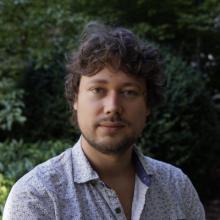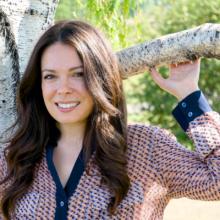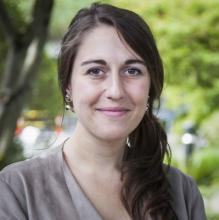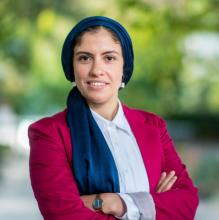Bahrami, Fatimah
For me, being a Public Scholar means using collaborative research to advance efforts that make the world a better place by addressing human needs and rights. To achieve this, my research focuses on empirically investigating the potential benefits of a child-friendly traditional karate program on children’s holistic development.
Research Description
We are living in a stressful world, and children often unconsciously absorb much of this stress from their environment. Stress can hinder children’s normal development across various domains — social-emotional, cognitive and physical — and negatively impact their success at school. Evidence-based programs are needed to support children’s right to thrive and succeed. One promising, yet understudied, approach is traditional martial arts. Research suggests that these practices may enhance academic success and improve motor, cognitive and social-emotional development. Through an intersectional partnership, we aim to introduce a child-friendly karate program as an after-school curriculum in a few large elementary schools. We will investigate the potential benefits of this program on children’s academic skills and their social-emotional, cognitive and motor functions, comparing it to an active control group (aerobic exercises and resistance training) and a passive control group (business as usual).
What does being a Public Scholar mean to you?
For me, being a Public Scholar means using collaborative research to advance efforts that make the world a better place by addressing human needs and rights. To achieve this, my research focuses on empirically investigating the potential benefits of a child-friendly traditional karate program on children’s holistic development. This study involves an intersectional collaboration between academic and non-academic sectors.
In what ways do you think the PhD experience can be re-imagined with the Public Scholars Initiative?
The Public Scholars Initiative can reimagine the PhD experience by facilitating partnerships to address key global problems and supporting students in disseminating their project results beyond traditional forms.
How do you envision connecting your PhD work with broader career possibilities?
I hope that one day people around the world will recognize traditional karate for what it truly is: a movement-based, mindful art capable of nurturing not only physical fitness but also cognitive, social-emotional and moral development. My PhD project will rigorously examine the beneficial effects of an age-appropriate traditional karate school-based program on children’s cognitive, social-emotional and motor development. If the results of my project support this idea, new career opportunities may emerge by connecting trained karate experts with the educational and medical sectors, contributing to the support of children’s development and success.
How does your research engage with the larger community and social partners?
I am collaborating with two institutes that offer martial arts in a traditional way in Canada and the United States. Our long-term goal is to expand our partnership to include Karate Canada, Karate USA, and Karate Iran, as well as the Ministries of Education in these countries. We hope to inspire the incorporation of tailored traditional karate into school curricula or after-school programs, particularly for indigenous and refugee children.
Why did you decide to pursue a graduate degree?
My MSc thesis was the first to reveal the potential of teaching traditional karate to improve symptoms in children with autism spectrum disorder (ASD). This randomized controlled trial showed marked improvements in core ASD symptoms, such as decreased repetitive behaviours and increased communication and social interaction in children who participated in traditional karate compared to those who followed their usual routines. Additionally, parents of children in the karate group reported improvements in cognitive functions (e.g., attention), academic skills, emotional well-being and even the quality of life for their family members. The promising results of my master's study motivated me to further investigate the benefits of traditional karate and its underlying mechanisms. Pursuing a PhD in Canada, a western country, was the ideal path for me to acquire new knowledge and skills while exploring the implementation and benefits of traditional karate within western culture. My PhD project will not only deepen our understanding of karate's potential benefits in a western context but will also support its global application.
Why did you choose to come to British Columbia and study at UBC?
After completing my 12-month training period at the Perceptual Neuroscience Laboratory for Autism and Development at McGill University during 2019-2020, I was fortunate to come across the studies of Prof. Adele Diamond from UBC. Her systematic review in 2019 demonstrated that mindfulness activities involving movement, including traditional martial arts, are particularly effective for improving cognitive functions known as executive functions (e.g., planning, self-control, working memory and creative problem solving). I found this study very interesting and closely aligned with my research interests. Consequently, I chose UBC to study the benefits of a child-friendly traditional karate program under the supervision of Prof. Diamond in the Developmental Cognitive Neuroscience Lab.



